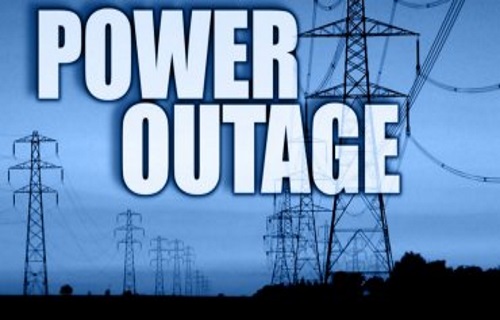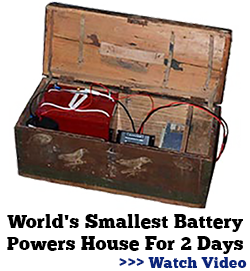Between living in today’s post-pandemic reality and an emerging climate crisis happening worldwide, keeping your family safe and sound is more timely than ever. For example, when planning for power outages, we need to plan for every possible scenario. As the head of your household, being prepared is your number one priority.
It’s all about hoping for the best while expecting the worst. As Americans, many of us are raised under the assumption that facing problems such as dealing with a power outage are the types of things that only people from other parts of the world go through. However, if you’ve been following the news at all this year, you know that’s not the case.
Most recently, back in February of this year, several major cities in the United States, ranging from Portland, Oregon, to Austin, Texas, experienced widespread power outages. Imagine being in the middle of one of the coldest months of the winter, with no access to electricity. That means no heat, no internet connection, no access to warm water, in which case you are practically stranded in your own home.
So, what can we do to prepare ourselves for such an event? With so much to think about, it can be overwhelming even to know where to start. From deciding on what survival foods you need to develop an emergency plan, it’s a good idea to cover all your bases. Luckily, we break it all down for you to let go of the worrying and focus your time and effort on creating the emergency plan that’s right for you and your family.
Steps to prepare for a power outage
1. Keep your non-perishables handy
The scary thing about power outages is that they are often hard to predict. So if you find yourself in one, you want to make sure that you and your household have enough food to last you through the storm. A good rule of thumb is to plan to have enough food for three days, and one gallon of water per person, per day.
When it comes to what types of food to keep handy, go for what’s healthy and nourishing to your body. Some examples of this include protein-dense foods like peanut butter or canned meats, canned fruits, and nuts or trail mix. In terms of storage, be sure to keep your non-perishables in a dry, cool space. If you happen to have any perishable foods that might still be good to consume, look into proper ways to store them.
2. Make your go-to bag
The worst thing that could happen is experiencing a power outage and then finding yourself and everyone and everyone else scrambling to find something in the dark or cold. Making a go-to bag is probably one of the most important things you can do for yourself and your household.
Everyone has specific needs, whether it’s different clothing sizes to dietary restrictions, so keep that in mind when deciding on what is crucial to bring along. Beyond just the individual needs, there are also the family’s.
Examples of what to include are listed below:
- Phone charger and portable battery
- Medication and first aid kit
- Extra set of clothes for extreme weather
- Pillows and blankets
- Flashlight and extra batteries
- Any comfort items for your kids
- Water bottles
- Pet food and supplies
- Non-perishable snacks
In other words, you aren’t necessarily packing for a vacation. You’re preparing your family in hopes of withstanding an emergency.
3. Stay informed with weather news reports for your region
While you may not be able to predict precisely when a power outage will strike, staying updated with the weather forecast in your region might be one of the closest things. Knowing when there is a storm on the way, or whether there may be a high chance of a blizzard depending on where you live, is probably one of the most innovative ways to protect yourself.
One practical and easy way to do this is through your smart devices. You can set up push notifications for your local news channel and weather apps so that you’ll receive information in real-time and be able to ensure better your awareness of how the climate may affect your situation.
4. Take advantage of surge protection in your home
When you experience a power outage, you lose access to a lot of your home’s appliances. When the power comes back on, you would expect everything that went out to turn right around on with it. Unfortunately, that’s not always the case. Power outages can damage your home’s electrical system and plug-in devices permanently. This is why you may want to consider homeowner’s insurance with surge protection.
Surge protection allows you to protect the data on your devices, not to mention the money you invested on each of them so that you can have one less thing to worry about when the power goes out.
5. Keep your car’s gas tank full
In the event of an emergency, the last thing you want to happen is to be stranded in your own home, with no way to contact anyone. Keeping your vehicle with enough gas to at the very least get you to the nearest gas station is probably the minimum you can do to ensure that your family is all set to leave.
While this may not be the best idea for every household, some people like to keep extra gallons of gasoline on reserve in their garage just in case. It is especially good to do if you live far from the nearest town or commercial center with access to a gas station or if you have a generator in your home.
6. Prepare for your specific medical needs
We all have different needs, especially when it comes to our health. So when you are packing your family’s emergency getaway bag, you must include general items, as well as the right supplies for each person’s individual needs. It could be anything from insulin for diabetes to an epi-pen to help with any allergic reactions.
7. Make sure your home’s smoke and carbon detectors are running properly
Carbon monoxide poisoning can be devastating and cause long-lasting damage to you and your family. Regardless of whether or not you feel that there is a high risk for a power outage in your area or not, smoke detectors often rely on a combination of electricity and battery power. So one thing you can do right away is set a reminder for yourself, whether it’s on your phone or through your personal computer, to make sure you switch out the batteries every six months.
8. Invest in a generator
Do you live far from town? Is someone in your family on dialysis? If there is any critical dependence in your family on electricity whatsoever, you should consider getting a generator for your home. It goes beyond just having comfort. It’s about being able to address critical needs for you and your family.
If you decide on obtaining a generator, make sure you use it a few times before there is ever an actual need. The last thing you want to do is read a manual in the dark or find out that something doesn’t work while everyone else is panicking and desperately relying on the generator to be up and running. So don’t wait until an emergency comes up, and make sure you have everything ready to go beforehand.
9. Bring your family’s favorites
In a crisis, the last thing you want to do is have to deal with scared and crying children. One of the best ways to mitigate this is by packing some of their favorite toys, blankets, or any items that give them a sense of comfort. In times of uncertainty, making sure your whole family feels that much more comfortable can make a world of difference.
So stock up on entertainment so that you can have something fun to keep everyone from your toddler to grandma happy. Be mindful of the energy consumption that certain toys or games might utilize, so avoid battery-powered or games that need to be charged. Instead, go for the timeless classics like board games, stuffed animals, or those favorite family books.
When it comes to preparing for a power outage, it’s all about finding a sense of safety for you and your family. While doing things like creating a go-to bag and keeping medical supplies handy are critical, having a home insurance provider like Hippo can prove highly valuable to your ability to sleep with a clean conscience.
Books can be your best pre-collapse investment.
Carnivore’s Bible (is a wellknown meat processor providing custom meat processing services locally andacross the state of Montana and more. Whether your needs are for domestic meator wild game meat processing)
The Lost Book of Remedies PDF ( contains a series of medicinal andherbal recipes to make home made remedies from medicinal plants and herbs.Chromic diseases and maladies can be overcome by taking the remediesoutlined in this book. The writer claims that his grandfather was taughtherbalism and healing whilst in active service during world war twoand that he has treated many soldiers with his home made cures. )
Easy Cellar(Info about building and managing your root cellar, plus printable plans. The book on building and using root cellars – The Complete Root Cellar Book.)
The Lost Ways (Learn the long forgotten secrets that helped our forefathers survive famines,wars,economic crisis and anything else life threw at them)
LOST WAYS 2 ( Wordof the day: Prepare! And do it the old fashion way, like our fore-fathers did it and succeed longbefore us,because what lies ahead of us will require all the help we can get. Watch this video and learn the 3 skills that ensured our ancestors survival in hard times offamine and war.)
Written By Rebeca Camacho—-https://www.survivopedia.com
Rebeca Camacho is a content creator who focuses on weaving in insightful perspectives into various forms of communication. Her deep enthusiasm for digital marketing and crafting perceptive narratives has led her to write about various subjects from entrepreneurship to mindfulness.




